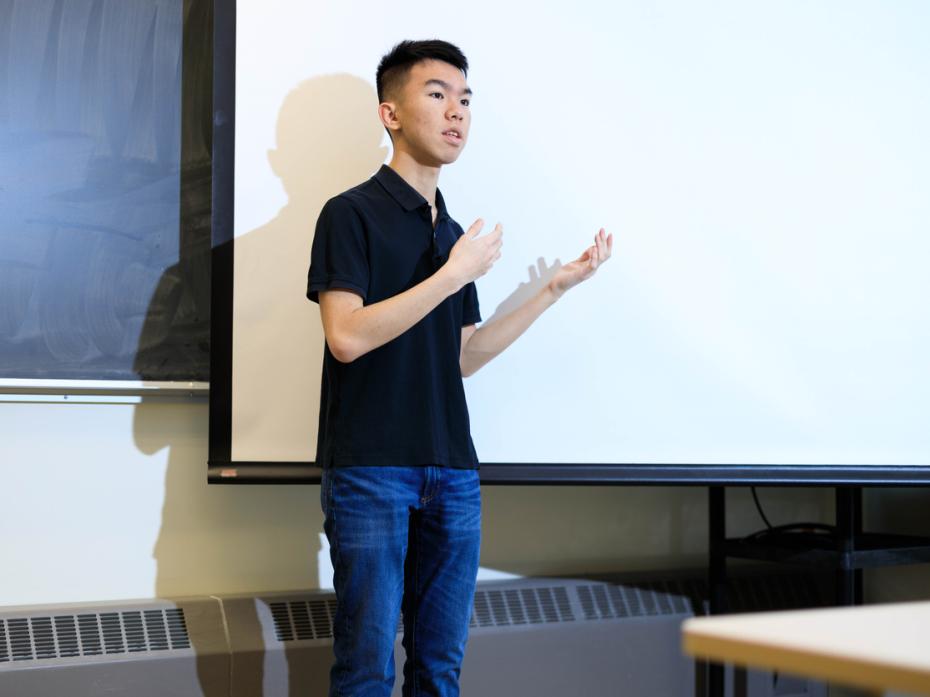Creating meaningful connections among undergraduates and postgraduate researchers isn’t easy, especially in large, research-intensive universities. But fostering these connections can help students expand networks and create a more inclusive sense of community. For undergraduates, links with scholars who have gone before them can demystify postgraduate study and help them build academic confidence.
Here, we share lessons learned from piloting a low-cost, scalable event aimed at bridging that gap: a LinkedIn-based digital poster event.
Digital tools can lower barriers but cannot guarantee engagement
Digital platforms such as LinkedIn can provide a more flexible, accessible way for students to interact across cohorts. Our LinkedIn Poster Day, inspired by the Royal Society of Chemistry’s #RSCPoster event, invited PhD students to share research posters via the hashtag #SotonChemPoster (Soton is the in-house abbreviation for the University of Southampton) and undergraduates to engage by commenting. We offered prizes for both the best poster and best student commenter to promote engagement.
LinkedIn is an ideal location for an online event based on providing opportunities for discussions and communication. It creates a space to showcase expertise, build networks and start conversations that could one day lead to collaborations or careers. More than that, it’s accessible. Students could engage in their own time, without needing to travel or navigate packed poster halls. And, crucially, it mirrored the way scientific dialogue is increasingly happening – digitally and publicly.
- LinkedIn is becoming academia’s key tool for career progression
- How I use social media as a research tool
- Spotlight guide: How to make social media an academic friend not foe
However, we learned that digital space doesn’t guarantee psychological safety. While many undergraduates viewed posters, far fewer commented on the posts. Feedback revealed a common concern: they weren’t sure what to ask and worried about looking foolish. This raises a key question: if students do not feel confident enough to engage, is the event truly accessible? If you want genuine accessibility and engagement, it seems we must build not just digital infrastructure but also confidence to participate.
Engagement is a skill that would benefit from explicit training
Even in digital spaces, students may hesitate to speak up unless they feel directly invited. Students were given plenty of reminders in the run-up to the event that there are no stupid questions and they should feel free to ask anything, so the challenge seems to extend past simple reassurances. Unfortunately, as with all cases of anxiety and catastrophising, the only way to prove this is true is to take a leap of faith and ask that first question.
Future events seem to need more explicit encouragement alongside specific training such as a mini “how to ask good questions” workshop. Helping students to feel equipped with question-asking as a skill will hopefully provide the confidence boost needed to pose that first question and see for themselves that they have value to contribute.
The same is also true of our postgraduate presenters. Our PhD poster prizewinner, Robert Clarke, who is a former Southampton undergraduate, described the motivation behind their involvement: “When I was an undergrad here, I remember not having much of a clue how the research ecosystem works. I thought this event would be a great opportunity to display this to them, and maybe even get people thinking about options after their studies.”
Clarke highlighted one of the challenges of the event: “I appreciated the different perspectives from students not in my field...but I was also presented a challenge in explaining the answers in a way that wasn’t too overwhelming for someone relatively new to these concepts.”
The ability to present information to non-specialist audiences is a vital transferable skill that is not typically developed when presenting at “traditional” academic conferences. So, it is encouraging that the LinkedIn Poster Day provides an opportunity for this. Bespoke training in this type of communication would better prepare students for participation and potentially improve engagement.
Public-facing digital engagement introduces an anxiety of its own
When considering a low-anxiety presentation environment, an initial reaction may be that moving online reduces social anxiety relative to a busy room full of people. However, this underestimates how carefully some postgraduates curate their LinkedIn presence. Sharing a poster online, where potential employers or collaborators might see it, raised the stakes. What might be “good enough” for a conference wasn’t necessarily something they wanted to post publicly without revisions.
Future events must provide substantial lead-in time, more reassurance and potentially even guidance for adapting academic posters for a digital and professional audience.
Student engagement metrics are challenging to interpret
While some undergraduates actively participated, the number of comments was smaller than hoped. At first glance, it might seem that the event didn’t spark the desired level of engagement. However, several students reported in feedback discussions that they enjoyed the event (they were discussing posters they had read in labs the following day) but did not comment because they were unsure what to ask or worried about looking stupid.
Even our undergraduate engagement winner, Lucy Mannie, reported similar feelings at first but was quickly put at ease: “Very few of the questions I asked were technical...but instead were related to the wider context of the research. The researchers were so friendly about answering. I found I was most comfortable commenting on the posters of researchers I knew, like lecturers and lab demonstrators.”
This reflection highlighted two key outcomes. First, metrics such as the number of comments only tell part of the story. Some students took away real value from the event without public interaction. Second, if we want more active engagement next time, we’ll need to do more to foster student confidence in asking questions, even “simple” ones. The biggest barrier to participation appears to be in asking the first question. Once students take the plunge, they will quickly realise that they are capable and valued within the community.
Looking ahead
Our first LinkedIn Poster Day wasn’t perfect, but digital format has real potential to connect academic communities in new and inclusive ways. To achieve this potential, it is vital to help students get over that first hurdle of initial participation – asking that first question or sharing that first poster.
Students who were able to jump in and give it a go benefited from a supportive scientific community. With bespoke training, they can feel more equipped to share, question, comment and discuss with confidence as part of our wider scientific community.
Sam Perry is a teaching fellow in chemistry, Robert Clarke is a PhD candidate, and Lucy Mannie is an undergraduate student, all at the University of Southampton.
If you would like advice and insight from academics and university staff delivered direct to your inbox each week, sign up for the Campus newsletter.




comment